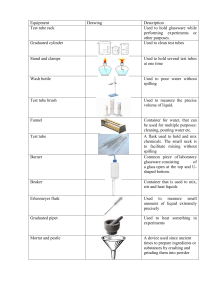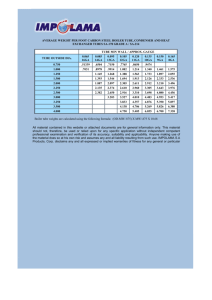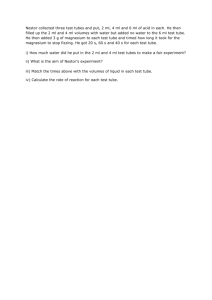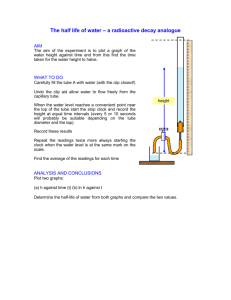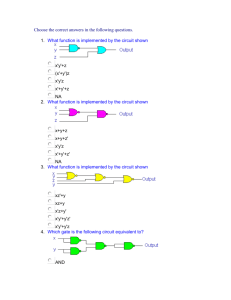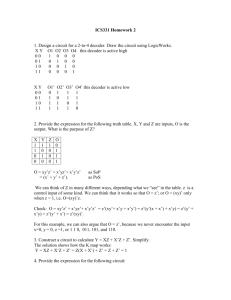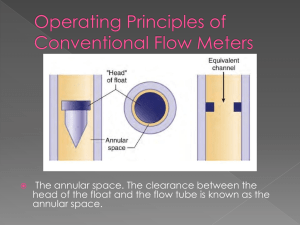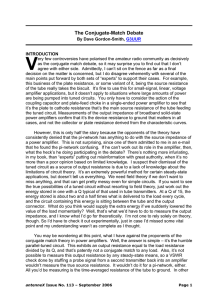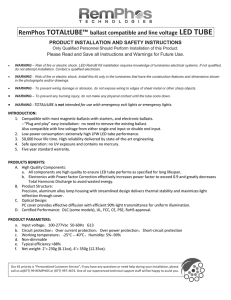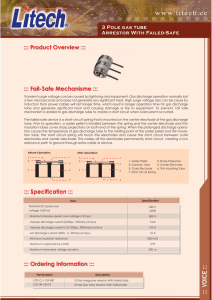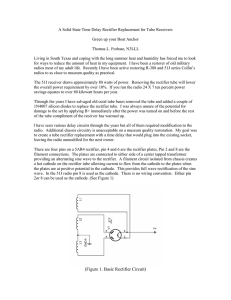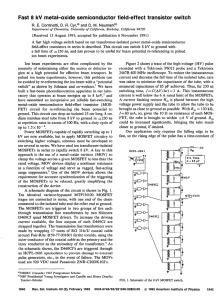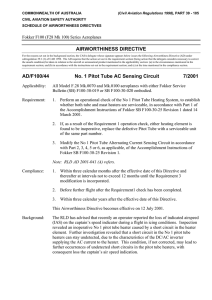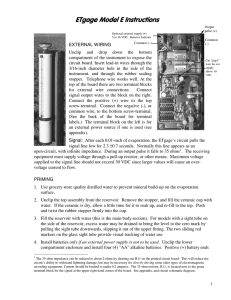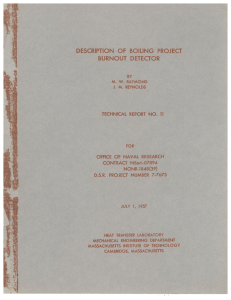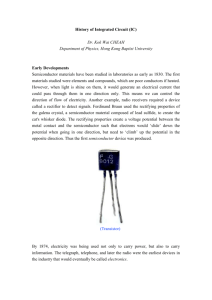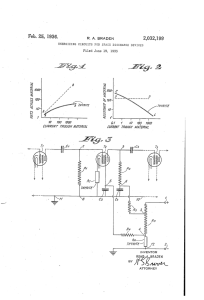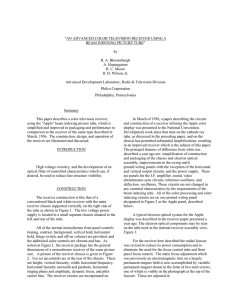Mechanical Engineering Department Refrigeration and air
advertisement
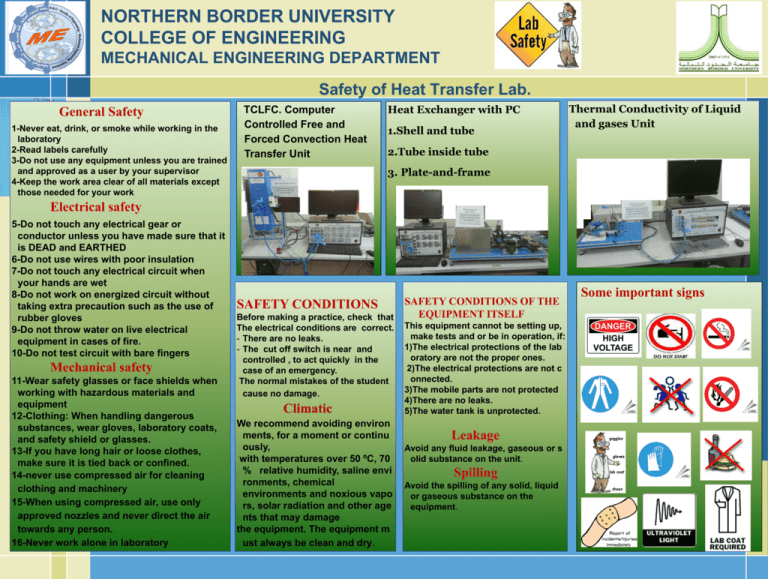
NORTHERN BORDER UNIVERSITY COLLEGE OF ENGINEERING MECHANICAL ENGINEERING DEPARTMENT Safety of Heat Transfer Lab. General Safety 1-Never eat, drink, or smoke while working in the laboratory 2-Read labels carefully 3-Do not use any equipment unless you are trained and approved as a user by your supervisor 4-Keep the work area clear of all materials except those needed for your work TCLFC. Computer Controlled Free and Forced Convection Heat Transfer Unit Heat Exchanger with PC 1.Shell and tube Thermal Conductivity of Liquid and gases Unit 2.Tube inside tube 3. Plate-and-frame Electrical safety 5-Do not touch any electrical gear or conductor unless you have made sure that it is DEAD and EARTHED 6-Do not use wires with poor insulation 7-Do not touch any electrical circuit when your hands are wet 8-Do not work on energized circuit without taking extra precaution such as the use of rubber gloves 9-Do not throw water on live electrical equipment in cases of fire. 10-Do not test circuit with bare fingers Mechanical safety 11-Wear safety glasses or face shields when working with hazardous materials and equipment 12-Clothing: When handling dangerous substances, wear gloves, laboratory coats, and safety shield or glasses. 13-If you have long hair or loose clothes, make sure it is tied back or confined. 14-never use compressed air for cleaning clothing and machinery 15-When using compressed air, use only approved nozzles and never direct the air towards any person. 16-Never work alone in laboratory SAFETY CONDITIONS Before making a practice, check that The electrical conditions are correct. - There are no leaks. - The cut off switch is near and controlled , to act quickly in the case of an emergency. The normal mistakes of the student cause no damage. Climatic We recommend avoiding environ ments, for a moment or continu ously, with temperatures over 50 ºC, 70 % relative humidity, saline envi ronments, chemical environments and noxious vapo rs, solar radiation and other age nts that may damage the equipment. The equipment m ust always be clean and dry. SAFETY CONDITIONS OF THE EQUIPMENT ITSELF This equipment cannot be setting up, make tests and or be in operation, if: 1)The electrical protections of the lab oratory are not the proper ones. 2)The electrical protections are not c onnected. 3)The mobile parts are not protected 4)There are no leaks. 5)The water tank is unprotected. Leakage Avoid any fluid leakage, gaseous or s olid substance on the unit. Spilling Avoid the spilling of any solid, liquid or gaseous substance on the equipment. Some important signs
